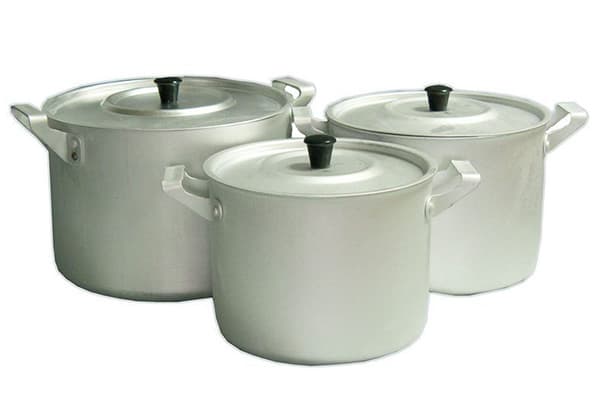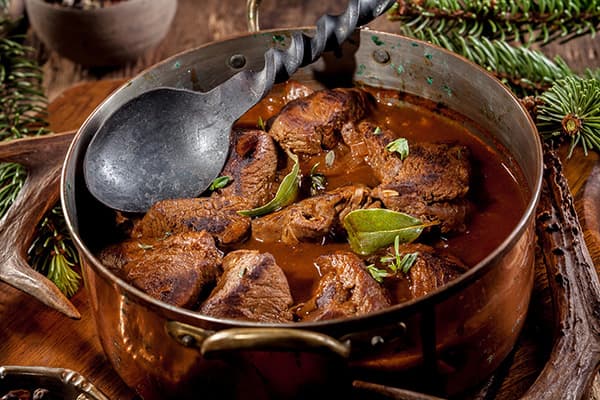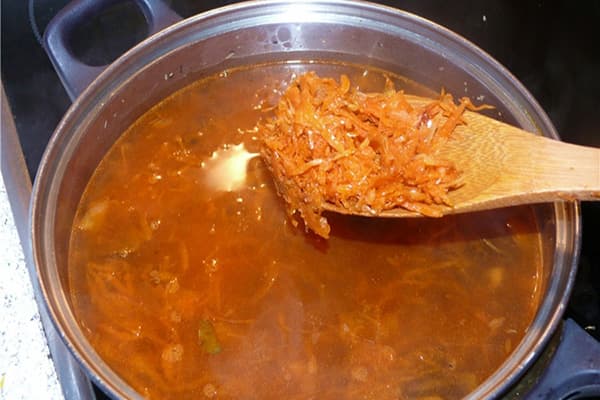The food had to be thrown away - the husband did not know that food should not be stored in aluminum containers
Like many large families, I have a lot of old dishes in my house that have been used for preparing and storing food for decades. I had never thought before why food should not be stored in aluminum containers, although my mother and grandmother warned me about this. All generations of our family have used an aluminum pan to boil milk, but we have never left it in it overnight. But somehow, out of ignorance, my husband left sour cabbage soup in it - alas, I had to pour it out. Now I'll tell you why.

Properties of aluminum
Having taken a school course in inorganic chemistry, it is not difficult to understand how recommendations not to store ready-made dishes in aluminum pans are related to the ability of the material to enter into chemical reactions with various substances.
Aluminum remains stable only in a neutral environment, and when the acidity changes, it enters into a chemical reaction:
- in an alkaline solution – with the formation of aluminates;
- in an acidic solution – with the formation of aluminum salts.
When an acidic or alkaline solution is kept in an aluminum container for a long time, the protective oxide film dissolves - because of this, the metal reacts with the liquid and goes into solution.
Aluminum can also gain access to food if the surface is mechanically damaged, for example, when vigorously stirring a dish with a metal spoon.Aluminum in food can change its taste, and eating such food can have adverse health effects.
It is not recommended to use aluminum forks and spoons in everyday life, but you can cook in pots and pans made of this material.
Recommendations for cooking in aluminum cookware
You can safely cook in pans and other aluminum containers with a protective non-stick coating. The metal is protected from contact with food by a durable composite or other layer and does not interact chemically with products. Such dishes can also be used to store ready-made dishes.
If there is no protective layer on the inner surface, prepared food cannot be stored in such a container.
I use my pots and pans for cooking according to the following rules:
- I don’t cook very acidic foods in them, such as sauerkraut cabbage soup, cranberry jelly or fruit juice;
- I use a wooden spoon or plastic spatula for mixing;
- I immediately place the finished dish on plates or transfer it to a glass or plastic container for storage.
After freeing yourself from food, the dishes should be washed immediately. To avoid damaging the metal surface, I only use soft foam sponges and regular cleaning product. It is impossible to achieve the same shine from aluminum pans as stainless steel cookware, and special shine products can react chemically and damage the surface.
Advantages and disadvantages of aluminum
Aluminum kitchen utensils have their pros and cons, knowing which you can use them correctly in your kitchen.
Main advantages:
- lightness - frying pans weigh much less than their cast iron counterparts;
- fast heating and cooling;
- relatively low price.
Negative sides:
- the metal may react with the contents of the pot or pan;
- due to high thermal conductivity, food may burn;
- It is impossible to achieve a mirror-like surface shine; if used incorrectly, stains may appear.
I continue to use the aluminum cookware I inherited from older generations, but I try to take precautions and never leave prepared foods in the cookware they were used in.
Katerina Ozerova

